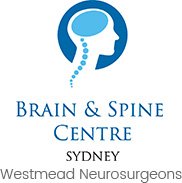Movement Disorders
Movements are produced by an interaction between the brain, spinal cord, nerves and muscles. Damage to any of these structures can lead to disruption or loss of movement. Movement disorders are a group of neurological disorders characterized by abnormal involuntary or voluntary movements. Deficit in movements may involve weakness, paralysis or exaggerated reflexes of voluntary muscles (example: Huntington disease), decreased movement of involuntary muscles, and loss of coordination (example: ataxia).
Your doctor will diagnose your condition by reviewing your symptoms and family history and performing a physical examination. Imaging tests such as MRI and PET scans, and neurological tests that study movement may be ordered.
Treatment depends on the type of movement disorder you have. Your doctor may prescribe medications to control symptoms. Botox injections may be administered to control muscle spasms. In case of severe symptoms, your doctor may recommend surgery to safely remove nerves or part of the brain producing the symptoms. Deep brain stimulation may be recommended to interrupt signals from your brain producing the abnormal movement.




